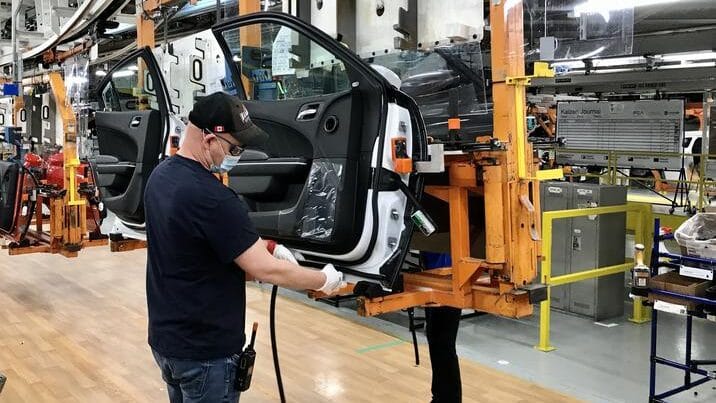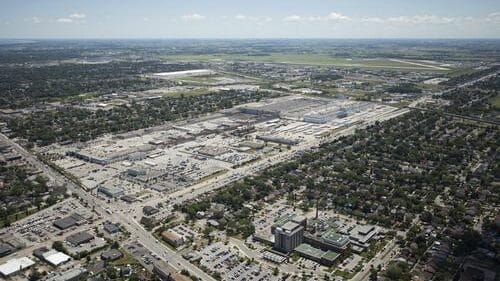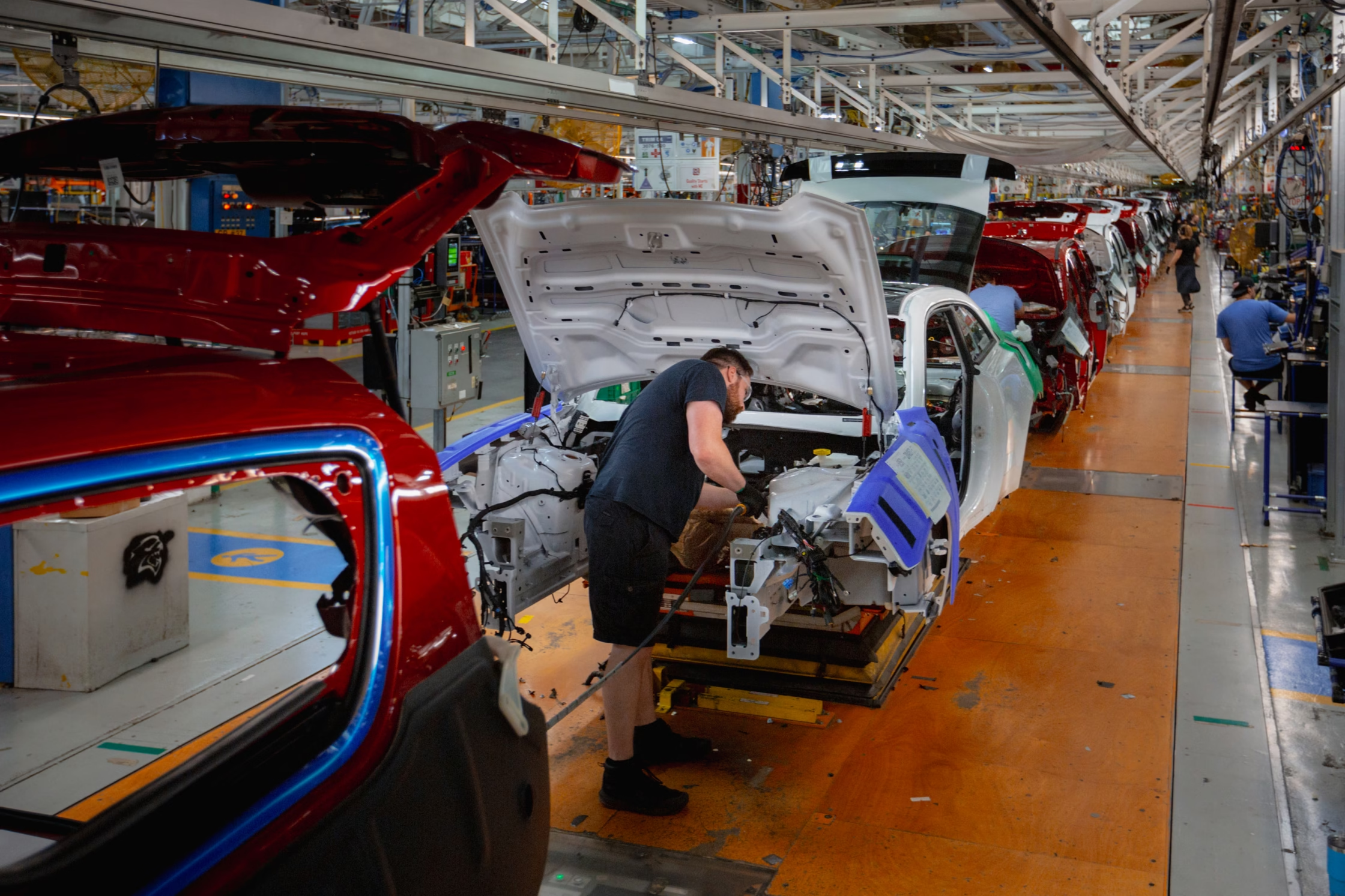On Tuesday evening, Canadian autoworkers were left stunned after Stellantis announced its plan to move Jeep production from the Brampton Assembly Plant to the Illinois as a result of President Donald Trump‘s tariff’s on Canadian-built vehicles.
The move has raised serious questions about the future of Canada’s auto industry, as thousands of autoworkers are now out of work. Donald Trump’s tariffs on Canadian exports have exposed how decades of free trade agreements tied Canada’s economic fortunes closely to the United States. That deep reliance has, in turn, left Canadians to deal with the consequences of U.S. policy decisions, which directly influence how corporations allocate production, investment, and jobs.
Prime Minister Mark Carney said the federal government is working with Ontario and Unifor to support affected employees. “We expect Stellantis to fulfill its undertakings to Canadian workers,” he said in a statement, adding that the decision is a direct result of recent U.S. trade measures.

In March, Carney had announced plans to boost Canada’s auto sector’s competitiveness and protect manufacturing jobs. Yet, when 1000 steel workers lost their jobs in Canada this past July, Carney offered very little support to workers and instead offered a little over a billion dollars to corporations.
Brampton workers are not the only ones to be hit by Stellantis’ cutbacks. Four hundred autoworkers were temporarily laid off for seven days at the Windsor Stellantis plant in May followed by a 12 week reduction in shifts. Windsor autoworkers fear their plant may be shutdown next. Stellantis claims this is not the case and insists they are “adding a third shift to the Windsor Assembly Plant to support increased demand of all versions of the Chrysler Pacifica…,”
Unifor National President Lana Payne called for immediate action to defend Canada’s manufacturing base. “Saving Brampton Assembly must now be this country’s top priority,” she said. “If this decision stands, it sends a message that Canadian autoworkers are expendable. That cannot happen.”

Brampton Mayor Patrick Brown also criticized the move, calling it a “step backward” from Stellantis’ earlier promises to retool and modernize the Brampton facility. He urged Ottawa and Queen’s Park to develop a coordinated national strategy to protect domestic production and strengthen Canada’s position in the global auto industry.
“Stellantis made a commitment to Brampton autoworkers, to our federal and provincial governments, to our communities, and to this country,” said Vito Beato, Vice Chair of the Unifor-Stellantis bargaining committee and President of Unifor Local 1285, representing workers at Brampton Assembly Plant. “We intend to hold Stellantis to everything it promised.”


Be part of the conversation!
Only subscribers can comment. Subscribe to The North Star to join the conversation under our articles with our journalists and fellow community members. If you’re already subscribed, log in.